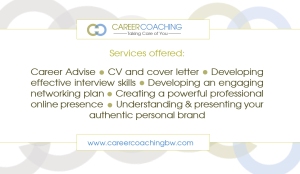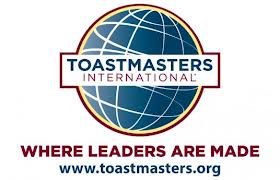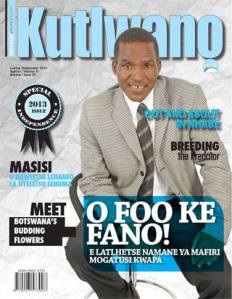Get Involved
Last month on Career Corner we talked about putting together a Professional Development Plan. As a follow up, this month we are wrapping up the year by focusing on organizations that one can get involved in for the year 2014 to build up or enhance one’s people skills or interpersonal skills such as communication skills, conflict resolution and negotiation, personal effectiveness, problem solving, strategic thinking, team building and so forth.
These days almost all job applications want some amount of years of experience and often at times fresh graduates are crying fowl about companies not giving them internship opportunities during school holidays to gain experience. Therefore, it is important that one considers doing some voluntary work or internship regularly during their school years. Young professionals are also encouraged to take part in career development activities outside work to continuously enhance their skills.
As you are busy working on your 2014 Career Development Plan, some of the organizations that one can join for membership or volunteer at for personal and career development purpose include;
BOTSWANA STUDENT NETWORK SOCIETY: a student platform creating a linkage between students, government and companies in the development of academic excellence, leadership skills, career opportunities and social responsibility to help prepare learners to effectively and productively respond to the challenges of university, the corporate world, labour market and society at large.
TOASTMASTERS GABORONE CLUB: Provides a supportive and positive learning experience in which members are empowered to develop communication and leadership skills, resulting in greater self-confidence and personal growth. As a member of Toastmasters, you have the opportunity to gain speaking experience that relates to specific career needs, develop and practice leadership skills, sharpen your listening and evaluation skills, give regular impromptu talks, learn and practice techniques of effective public speaking, prepare and deliver formal speeches on subjects of your own choice, preside over meetings and many more.
AIESEC BOTSWANA: Provides a platform for youth leadership development, AIESEC offers young people the opportunity to be global citizens, to change the world, and to get experience and skills that matter today. Amongst many other programs, AIESEC offers an exchange programme based on short to long term international internships that also promote professional development but more importantly cross cultural sensitivity.
GLOBAL SHAPERS COMMUNITY GABORONE HUB: Through the World Economic Forum, the Global Shapers Community was established as a special community for young people in their 20s to provide the youth with a platform to shape the future by integrating personal, community and global dimensions. It is united by a common desire to channel the members’ tremendous energy and enthusiasm into building a more peaceful, forward moving and inclusive world. City- based Hubs are the core of the Community. Gaborone Hub undertakes impact-generating projects to better the lives of the community.
STEPPING STONES INTERNATIONAL: is a non-governmental, non-profit organization that works to unlock the potential of orphaned and vulnerable adolescents (aged 12-18+). The organization uses a holistic approach by nurturing the mental, physical and emotional well being of our youth to create realizable opportunities for them to become self-sufficient. Through the leadership program, youth involved gain life skills, leadership, entrepreneurship and community mobilization competencies to assist them in the attainment of post-secondary education or full-time employment.
REMMOGO YOUTH ORGANISATION: registered with the Department of civil and national registration focusing on issues of Road safety, alcohol and drug abuse through educational campaigns. Remmogo Youth Organization, drives the behavioral change initiative amongst the youth.
YOUTH ALLIANCE FOR LEADERSHIP DEVELOPMENT IN AFRICA (YALDA): YALDA provides a forum for youth on the African continent and those abroad with a commitment to the welfare of Africa. By networking with professionals, mentors and each other, members will increase their capacity to take on positive leadership roles in their universities, countries and on the continent. Through YALDA, members will implement their short and long-term visions for Africa.
BOTSWANA FAMILY WELFARE ASSOCIATION (BOFWA): BOFWA is committed to promoting sexual and reproductive health and rights (SRH&R) with responsibilities to adolescents or young people, adults and families in Botswana. This is done through provision of information, education and counseling, youth and parents life skills development, clinical and outreach services delivery; SRH&R programme training and advocacy.
RECONSTRUCTION LABS (RLABS): a global movement that provides innovative ICT solutions to address various problems such as unemployment, alcohol and drug abuse and so forth. RLabs creates an environment where people are empowered to make a difference in the lives of others.
There are a lot of organizations one can look into; Red Cross, Junior Chamber International (JCI), Cancer Association Botswana, Bailor’s Children’ Clinic and so forth, just make time to research more about the organizations relevant to your line of interest or feel free to contact me for more information or for career coaching services including mapping out a long term career plan; writing a CV or cover letter; developing effective interview skills; building and managing an effective networking plan, email me on ccbotswana@gmail.com . Wishing you a merry Christmas and a happy new year!!!
The Art of Networking
Success is a journey and not a destination. Success is definitely not a spectator sport. You have to work hard and smart at achieving whichever goal it might be that you have set for yourself. Success is influenced by the people one meets and the events that one takes part in. One needs to have effective communication skills to be able to network; the way one interacts with those people around them. You need to make a good first impression that might possibly land you the dream job you have always wanted or the business deal you desperately need to soar your business to greater heights.
You need to put your best networking skills in place whether it’s during a business breakfast event or career expo for instance. In order to enhance your networking skills you need to have a great elevator pitch; being able to effectively introduce yourself is an important self-marketing tool. Having a great elevator pitch is helpful during networking or formal interviews.
An elevator pitch is a quick and brief way to introduce oneself. The ‘elevator’ comes from the idea that the introduction could be delivered within the time that the elevator takes from ground floor to the top floor of the elevator- that being a captivating speech that will most probably takes a minimum of 30 seconds to a maximum of one minute. The idea is not that you speak really fast and brag about yourself but that you introduce yourself in an interesting way that will make a lasting first impression.
Think about what it is you really want to get across about yourself in a first meeting. You can structure your elevator pitch by first introducing yourself by saying who you are and what you do, followed by a description of your strengths and skills. You can end off with future aspirations. It is very important to have done a self- analysis and assessment before getting out and talking to people. An example of an elevator pitch during a job hunting event would be; “Hello, my name is ………, I graduated with an accounting degree from university Y three months back and I am currently looking for a job in an well recognized accounting firm that will help me gain experience in the accounting field. I am someone who loves working with numbers and getting into the nitty gritty of information hence being great at analyzing information. My plan is to qualify as a chartered accountant in the next 3 years.” Remember; always be prepared to say something interesting about yourself in less than a minute. This also applies to business people who are at networking events such as business expos selling their products. You have less than a minute to really grab the full attention of a potential buyer and persuade them to buy your product.
Networking is not only done face to face. There is also online networking be it on social media forums such as Facebook, Twitter or LinkedIn. A lot of people especially graduates fail to use the social media platforms in an effective and beneficial way as a marketing tool. Nowadays potential employers search online to see the kind of applicants the company is recruiting. LinkedIn is a powerful professional platform. Having a LinkedIn profile means that you can be found by recruiters and it allows you to connect with other people who work in the same field as you. You can also ask questions, exchange information and find out about other opportunities as numerous companies use the space to advertise not only their products but also other opportunities available within the company.
Remember that if you are unemployed you should be spending at least three to four hours a day actively looking for a job of which most of this should be meeting people or being active through online discussions. It would be helpful to have comprehensive discussions with a career expert on how best to build or enhance your networking skills to better position yourself for success.
Through Career Coaching we can help you with your elevator pitch or guide you on building a strong LinkedIn profile, writing a CV or cover letter, developing effective interview skills, building and managing an effective networking plan and understanding and presenting your personal brand. Contact us on ccbotswana@gmail.com for enquiry on the prior mentioned services.
Kutlwano Magazine, Career Corner Page 60, October 2013 Issue
Where Leaders Are Made
Feeling some nervousness before giving a speech is natural and even beneficial, but too much nervousness can be detrimental. Here are ten proven tips on how to control your butterflies and give better presentations:
Know your material. Pick a topic you are interested in. Know more about it than you include in your speech. Use humor, personal stories and conversational language – that way you won’t easily forget what to say.
Practice. Practice. Practice! Rehearse out loud with all equipment you plan on using. Revise as necessary. Work to control filler words; Practice, pause and breathe. Practice with a timer and allow time for the unexpected.
Get to know the audience. Greet some of the audience members as they arrive. It’s easier to speak to a group of friends than to strangers.
Know the room. Arrive early, walk around the speaking area and practice using the microphone and any visual aids.
Relax. Begin by addressing the audience. It buys you time and calms your nerves. Pause, smile and count to three before saying anything. (“One one-thousand, two one-thousand, three one-thousand. Pause. Begin.) Transform nervous energy into enthusiasm.
Visualize yourself giving your speech. Imagine yourself speaking, your voice loud, clear and confident. Visualize the audience clapping – it will boost your confidence.
Realize that people want you to succeed. Audiences want you to be interesting, stimulating, informative and entertaining. They’re rooting for you.
Don’t apologize for any nervousness or problem. The audience probably never noticed it.
Concentrate on the message – not the medium. Focus your attention away from your own anxieties and concentrate on your message and your audience.
Gain experience. Mainly, your speech should represent you – as an authority and as a person. Experience builds confidence, which is the key to effective speaking. Toastmasters Gaborone club can provide the experience you need in a safe and friendly environment.
One of the most important elements of leadership is the ability to motivate people. Without motivation, even the most skilled team of seasoned professionals is unlikely to achieve great things. A highly motivated group of talented people, on the other hand, can move mountains.
While it’s true that motivating people involves more than just changing the way you speak, here are some few ideas you can follow to help build team motivation with only your words and your voice:
Be enthusiastic. Enthusiasm is contagious! Before you present your ideas, think about the aspects of the subject that you find the most interesting, and don’t be afraid to let that interest come through in your voice.
Use quotes, stories and anecdotes. Along with their obvious entertainment value, quotes and stories can lend authority to your topic and provide concrete examples that people can relate to.
Speak with confidence. Deliver your message loud and clear. Maintain eye contact with your listeners. Don’t mumble or slouch.
Say you and we, not I and me. Instead of telling people what you want them to do, present ways for them to work together to achieve their goals. Involve listeners in the success of the group.
Keep it simple. People aren’t motivated by what you say; they’re motivated by what they understand. The best way to ensure audience understanding is to break down complex ideas into simple components.
Over the past few months I have met a lot of young people who felt so hopeless about their public speaking skills as this greatly affected their self- confidence especially during job interviews or facilitating meetings at work.
As a member of Gaborone Toastmasters Club, I would encourage every person who is serious about improving their public speaking or leadership skills to join the local non-profit organization. The benefits one will reap from joining the organization where leaders are made are clear communication, improved leadership skills, enhanced teamwork, Effective meetings, increased productivity at work and positive mentoring. If you want to work towards becoming a world certified public speaker, then toastmasters is your answer.
With Toastmasters you are provided an opportunity to;
- Gain speaking experience that related to specific career needs;
- Develop and practice leadership skills;
- Sharpen your listening and evaluation skills;
- Give regular impromptu talks on assigned topics.
- Learn and practice techniques of effective public speaking;
- Prepare and deliver formal speeches on subjects of your own choice;
- Learn proper parliamentary procedures;
- Preside over meetings;
- Gain personal confidence that will help when speaking to one or a thousand people; and
- Put Botswana on an international platform by participating in Toastmasters International Annual speech Contest, “ The World Championship of Public Speaking”
The community, corporates, colleges, government agencies or religious entities can form their own toastmasters clubs to encourage and empower members towards their journey of becoming exceptional leaders. Toastmasters Gaborone Club members meet every fortnight at Thornhill Primary School, the next September meeting is on the 17th and October meetings are on the 8th and 22nd.
“We provide a supportive and positive learning experience in which members are empowered to develop communication and leadership skills, resulting in greater self-confidence and personal growth.”- Gaborone Toastmasters Club
If you need more information on how to get involved with toastmasters or help on career advising, writing a CV or cover letter, developing effective interview skills, creating a comprehensive LinkedIn profile, building and managing an effective networking plan and understanding and presenting your authentic personal brand you can contact me at ccbotswana@gmail.com
Kutlwano Magazine, Career Corner Page 74, September 2013 Issue
Education Mentors Needed
The Ministry of Education and Skills Development has introduced a school based mentorship programme that aims at improving results in schools across the country. The Ministry will enter into a partnership with retired teachers or any individuals willing to assist in improving the declining results in our schools and to maximize students’ potential.
The schools are to register people interested in mentoring. Generally a mentor will be assigned to one student or a group of students and will meet with them frequently on an agreed time for at least a year on the school premises during working hours.
The aim of a mentor is to assist the student in developing and achieving his/her goals. Potential benefits for the students include high grades, fewer absences, career exploration, the caring, support and encouragement of a role model. For the mentor there is a challenge and satisfaction derived from helping students overcome their challenges. Mentors help students to benefit socially, emotionally and academically and this will lead ultimately to better-educated and more productive citizens. Just as the great Nelson Mandela once said, Education is the most powerful weapon that you can use to change the world.
WHAT IS A MENTOR
An education mentor is an individual who out of their own volition has chosen to serve as an advisor in partnership with the Ministry of Education and Skills Development on the provision of education in Botswana. A mentor helps a young person identify and develop his/her potential and shape his/her life. He/she encourages the mentee to use his/her strengths, follow dreams, and accept challenges.
Goals for Mentoring
- Promote retention of learners
- Support & guidance of learners
- Goal setting for learners
- Monitoring of learners work
- Improving the behaviors of learners in schools
- Support school based initiatives and programmes
- Promote drug and crime free behavior
- Creating a willingness to trust and accept responsibility
- Promote good attendance
- Improve academic performance
The Mentor
- Should work with a group of students for at least 1 year. The school based mentoring operates in the school for an agreed period.
- He/she must be caring and trustworthy.
- There must be acceptance and respect between the mentor & mentee.
- Identify resources to help mentee enhance personal development and career growth.
- Help build bridges between different levels of schools (pre/primary/Junior Secondary School/Senior Secondary School/Tertiary level)
- Strengthen links with community (active community partnerships).
- Assist learners with career guidance.
- Build positive relationship between staff, teachers, Parents Teachers Association, learners and other stakeholders to improve performance.
One of the major challenges in education is lack of parental involvement in their students’ lives particularly in the semi-urban or rural areas. The Ministry of Education and Skills Development needs each and every one of us to contribute towards the education system for the betterment of future generations’ livelihood and ultimately our beloved country. The sole responsibility of the students cannot be placed on the ministry and teachers only; we all need to put forward a helping hand.
As much as young people are moving away from rural areas to look for greener pastures in towns, this movement also disadvantages these underprivileged communities, as their skills set is lost to the cities. The hope is that after being educated we go back and contribute towards the development of our communities.
Volunteers are needed to mentor students across the 10 educational regions in the country. You might be a motivational speaker, entrepreneur, doctor, lawyer, architecture, accountant, teacher etc. or retired in your field and have plenty of time on your hands. This is your opportunity to contribute towards an improvement in primary and secondary students’ education to ensure that they are better prepared for tertiary and ultimately the corporate and business world.
To graduates who are just at home doing nothing, this is an opportunity to also grow your skill set. You might have graduated specializing in Mathematics, Science, English or any subject area and thus volunteer towards this mentorship programme knowing very well that you are contributing towards your community growth and at the same time enhancing your skills which will boast your curriculum vitae. If interested, have free time to volunteer and need more information on this programme; please contact the nearest Regional Education Office near you.
Even if it’s a little thing, do something for those who need help, something for which you get no pay but the privilege of doing it. For, remember, you don’t live in a world all your own. Your young brothers and sisters are here too. ~Albert Schweitzer … LETS ENCOURAGE THE CULTURE OF VOLUNTARISM!!!
If you need any career advise, writing a CV or cover letter, developing effective interview skills, creating a comprehensive LinkedIn profile, building and managing an effective networking plan and understanding and presenting your authentic personal brand you can contact us at ccbotswana@gmail.com
Kutlwano Magazine, Career Corner Page 52, August 2013 Issue
Think. Eat. Save… Reduce Your Foodprint!!!
The 5th of June 2013 was World Environment Day (WED). This important day is celebrated each year on June 5th to spread awareness among global citizens about mother nature. The theme for this year is Think. Eat. Save…. Reduce your foodprint. According to the UN Food and Agriculture Organization (FAO), every year 1.3 billion tonnes of food is wasted. This is equivalent to the same amount produced in the whole of sub-Saharan Africa. At the same time, 1 in every 7 people in the world go to bed hungry and more than 20,000 children under the age of 5 die daily from hunger. While the planet is struggling to provide us with enough resources to sustain its 7 billion people (growing to 9 billion by 2050), FAO estimates that a third of global food production is either wasted or lost. Food waste is an enormous drain on natural resources and a contributor to negative environmental impacts (Source: United Nations Environmental Programme).
The theme is to encourage you and I to become more aware of the environmental impact of the food choices we make and empower us to make informed decisions. So take action from your home and then witness the power of collective decisions you and others have made to reduce food waste, save money, minimize the environmental impact of food production and force food production processes to become more efficient. So think before you eat and help save our environment!
United Nations Environmental Programme shares the following tips on what you can do to help save the environment;
- Act now. Make the decision to become more aware of issues related to food waste.
- Adopt as many eco- friendly lifestyle choices as you can and make them habits.
- Buy locally. Flying foods across continents increases global transportation emissions.
- Bring a cloth bag to do all your grocery shopping. A reusable bag will last longer and only needs to be used 5 times to have a lower environmental impact than a plastic bag.
- Bring a mug with you whenever you go for take-out beverages, so you avoid using paper cups.
- Compost your organic food waste.
- Don’t buy more than you really need.
- Discover an alternative to using traditional wrapping paper for holidays and birthday gifts.
- Engage in an environmental activity, like school or neighborhood beautification or tree planting.
- Educate your friends on how individual actions can have an exponential impact and motivate action.
- Form a group of peers or colleagues to oversee the food waste at your school, neighborhood or workplace.
- Form a tree-planting group with family and friends and commit to planting and maintaining these trees together.
- Green your office by printing double sided, turning off monitors, starting an office-recycling program.
- Give seedlings as birthday gifts.
- Go electronic for bills and payments: at home, in the office, at the bank etc
- Identify the nature that surrounds you; take note of the beautiful plants and animals that you may not always appreciate. Learn about the amazing ecosystem services they provide.
- Improve the insulation of your home, it will really help your energy consumption and your monthly bills
- Join a local environmental or conservation group. You can team up with those around you and make a real difference in your community.
- Jog outside and save the energy you would have used on the treadmill.
- Learn more about the environmental impact of food production. Did you know that it takes 1000 litres of water to produce 1 litre of milk.
- More food in your pantry increases the risk of food going bad before you consume
- Mobilize your networks! Message your friends about the environment- facebook, twitter, sms, phone, email- it doesn’t matter, just get the word out.
- Notify your friends on how their action against food waste could have a huge impact. Even if just one-forth of the food currently lost or wasted globally could be saved, it would be enough to feed 870 hungry people in the world.
- Optimize the use of your washing machine- use the cold-wash option and significantly save energy and reduce your daily carbon emissions.
- Opt for public transport whenever possible.
- Order small food portions first. Better to add on than waste.
- Plan in advance. Know what you will need before you go grocery shopping so not to end up buying more food than what will be consumed in your household.
- Reduce. Reuse. Recycle.
- Sacrifice something small each month, eat locally grown vegetables instead of imported vegetables; do without steak, as cattle ranching is high impact! Carpool with co-workers; take your bike to work etc
- Support and motivate companies that use certified materials and operate in ways that are environmentally responsible.
- Switch your light bulbs to energy- efficient LED’s. You will see substantial savings on energy bills!
- Understand your options. Learn about the small ways you, as an individual, can make a positive impact on the environment.
- Use rainwater for your indoor plants- they love it, and you’ll save water at the same time.
- Travel around town on your bike, on public transport or walk to a restaurant near you. It’s cheaper.
At the World Environment Day celebrations held at Botanical Gardens in Gaborone, UN’s Resident Commissioner emphasized: “Food is a human right. Say NO to food waste and help reduce food print. THINK before you EAT and help SAVE the environment. Individual actions when multiplied can make a big difference to the planet.” It was also great to see primary school students taking part by showcasing their environmentally friendly products such as decorations, handbags and so forth. There was a young local businessman from Kanye who makes house decorations, kitchen utensils and ladies earrings with cow horns. They indeed proved that one could earn a living through turning recyclable and reusable material into a thriving business.
If you are passionate about the environment and do not know where to start to find out more on how you can positively contribute towards environmental awareness and sustainability in your community, do visit the following departments and organizations.
GOVERNMENT DEPARTMENTS
- Ministry of Environment, Wildlife and Tourism (MEWT)
- Department of Wildlife and National Parks
- Department of Environmental Affairs
- Department of Forestry & Range Resources
- Department of Waste Management and Pollution Control
- Department of Meteorological Services
- Department of National Museum and Monuments
- Department of Tourism
NGOs
- Cheetah Conservation Botswana
- BirdLife Botswana
- Kalahari Conservation Society
- Tsholo Trust
- Khama Rhino Sanctuary
- Mmokolodi Nature Reserve
- Forest Conservation Botswana
- Recyle- It Botswana
- Wena Environmental Education and News Trust
TERTIARY INSTITUTIONS
- University of Botswana Wildlife Conservation Society
- Colleges of Education (Serowe, Francistown, Molepolole & Tlokweng)
I also got a chance to engage with the MEWT Youth mainstream personnel whom gladly shared the youth opportunities in the Environment/ Conservation, Wildlife and Tourism Sector which include;
- Youth employment
- Youth income generating projects (reuse, recycle, fish farming production, game farming, tree planting, tour guiding services, arts/ curio/ crafts outlets, tourist camp sites/ picnic sites, travel & tours, guesthouse
- Youth skills capacity building
- Exchange programs
- Environment and Conservation programmes grants
- Information, Educational and Communication materials
Robert Swan OBE, the first person in history to walk to both the North and South poles and founder of 2041, International Antarctica Leadership Expedition once said, “The Greatest Threat to Our Planet Is the Belief That Someone Else Will Save It”. Saving our environment begins with YOU and I.
Contact me at ccbotswana@gmail.com if you need any information on the above mentioned departments or organizations. Remember, you can also contact me if you are a student, graduate, professional, out of school or unemployed in need of services including career advising, CV writing or preparation for job interviews.
Kutlwano Magazine, Career Corner Page 58, June 2013 Issue








